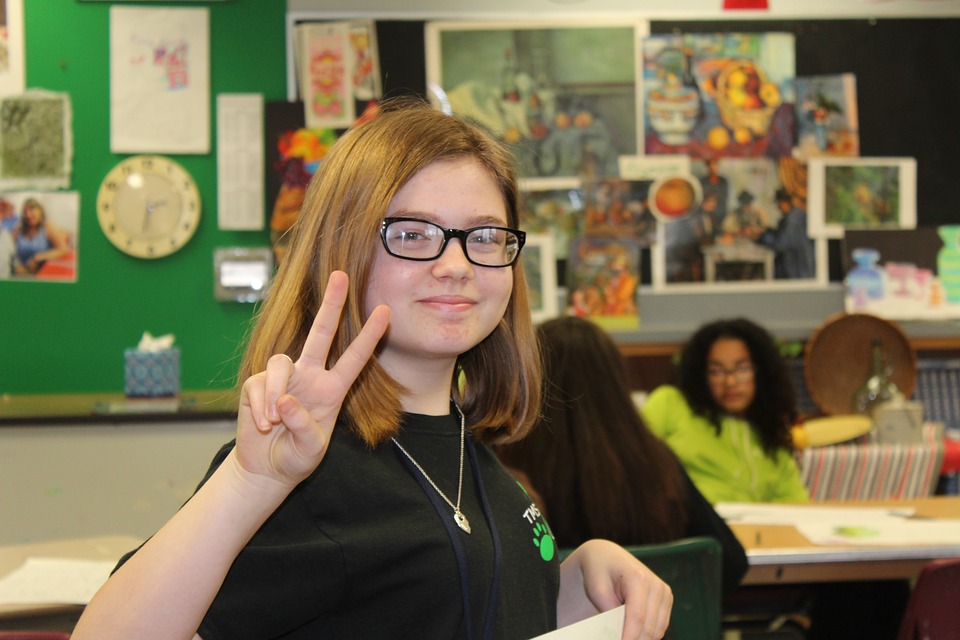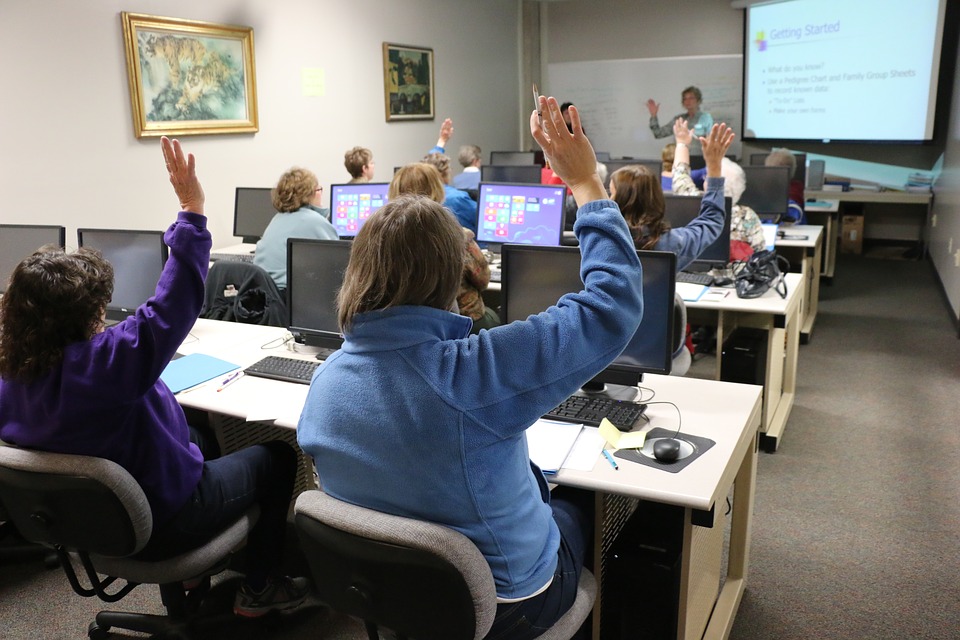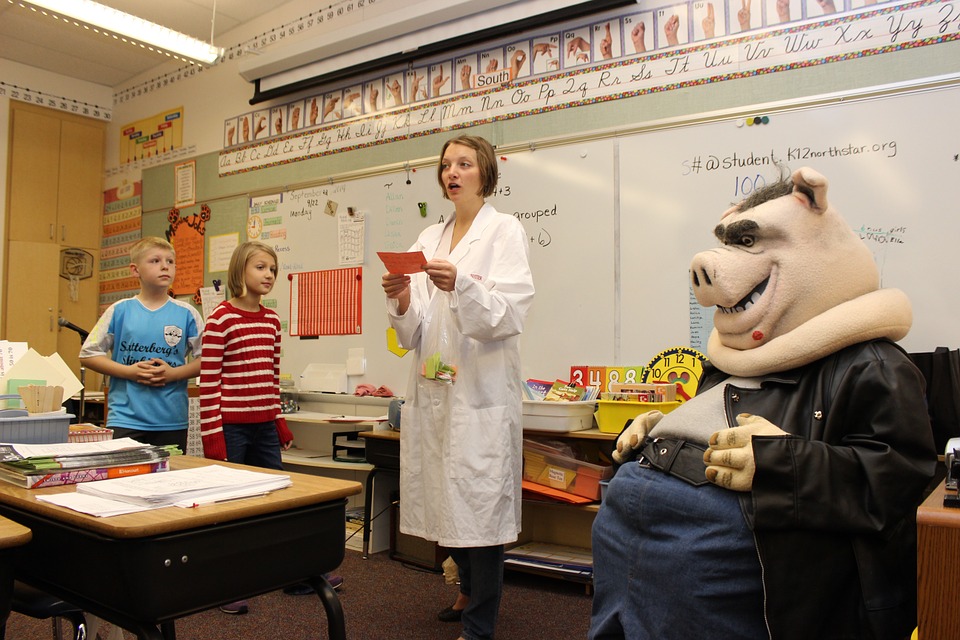
What does “self-fulfilling prophecy” have to do with good education and helping your kids succeed? Everything!
To raise our children to be successful, happy, healthy and productive grownups, we need a holistic approach. Yet our society and education system take a different approach. Governments spend billions of dollars every year to establish and run educational institutes where kids learn literacy and numeracy. Children dedicate 13 to 15 years of their life to learning things that will play a small part of their adult life.
Do not get me wrong, I think it is important to learn to read. I am also a qualified math teacher and think math is important. But tell me, out of a week of your life, with 24 hours a day and 60 minutes every hour, how much time do you analyze poems or find square roots of numbers? Do your amazing English and math abilities determine how happy, successful, healthy, friendly and productive you are?
I wish!
Learning depends greatly on the self-fulfilling prophecy of the teacher. Yes, I know, it sounds harsh, but the quality of the learning is highly dependent on what goes on in the teacher’s mind (and in the holistic approach, parents are also teachers). Every time I finish a day of professional development for teachers, the teachers are surprised to discover that what they think of the students manifests itself in the students’ behavior, social interactions and academic achievements.
What is a self-fulfilling prophecy?
The simple way of putting it is this:
Everything you expect becomes your reality. Your mind is busy justifying everything that goes on in your mind and creates a cycle that reinforces your expectations.

For example, if you meet new people with the expectation that they will be nice, you will smile at them, and when they smile back, you will think, “Just what I expected. Nice people”. But when your expectation is that they will want nothing to do with you, you will hesitate and keep your distance, and they will do the same, again confirming your expectation.
Research on self-fulfilling prophecies shows that even professional people cannot overcome their perceptions. In one experiment, psychiatrists admitted themselves into a metal institute and were diagnosed as mentally disturbed by other psychiatrists. Remember “seek and you shall find”? If you are a psychiatrist and look for signs of mental problems, you will find them, even if they are not there. Out subconscious mind can justify anything we believe.
Good boy or bad boy?
Another study showed social workers, teachers and psychologists a video of a boy in a playground and asked them to write a report about him. One group got the description “Tim, parents divorced, one sibling, low academic achievement”. Another group of same professions watched the same video with the description “Sean, mom and dad living together, one sibling, high academic achievement”. Sure enough, the reports on Tim showed behavior problems and the reports on Sean were pleasant and with no behavior problems. Again, I remind you these were all people who deal with children professionally and watched the same video. Each of their reports could determine that boy’s future!
Good class or bad class?

In a famous research many years ago, two great teachers started to teach two classes. Back then, they used to put all the “good kids” in one class and all the “troublemakers” in another class. The researchers told the teachers of the “good” class, “Unfortunately, this is the worst class in the whole school”. Then, they said to the other teacher with the “bad” class, “Lucky you, you have the best class in the school”.
What happened?
At the end of year, the grades in the “good” class dropped, while the grades in the “bad” class went up a lot.
How could this happen?
Well, they went and asked the teachers. The teacher of the “good” class, thinking his students were the worst, said, “Every time the students talked or did something inappropriate, I was very strict with them”. The teacher of the “bad” class, thinking his students were the best class in the whole school, said, “They moved a lot, so I figured if they were the best class and needed to move and talk in class, I’d let them do it and have more activities where they could move and interact”.
So what happened? The once-good class had been studying 80% of the time and was “policed” only 20%. Their new teacher changed this ratio to be 50% learning and 50% “policing”, so their performance dropped. The other class went from mostly “policing” to more studying, so their grades went up.
Simple! And all because of the teachers’ self-fulfilling prophecy.
Students with high IQ

A study done in one of the schools in Harlem discovered that more of the students from one Grade 12 class went to college. It was very unusual, so the researches decided to ask the teacher about it.
When they asked her about her students, she said she was disappointed that more of them did not go to college. The researchers ask her why, and she said it was because they were amazing kids and very smart. When they asked her why she thought they were especially smart, she showed them the marking role she used to mark every morning. It showed numbers like 110, 127 and 119 next to the students’ names. The teacher said, “With such high IQs, I would have expected all of them to go to college”.
The teacher did not know that the numbers next to the students’ names happened to be their locker numbers. For the whole year, she was convinced they were the students’ IQ scores, so she treated them like very smart kids and they did well.
Blue eyes or brown eyes?

She then gave the Blue Eyes group privileges. They sat at the front of the class and had more free time. They were also encouraged to play with kids within their group. Elliot deliberately singled out the brown-eyed kids and gave more “discounts” to the blue-eyed kids.
At first, the brown-eyed students resisted and protested. Elliot told them that Melanin in the eyes limited intelligence, which made the blue-eyed kids arrogant and bossy. The interesting part was that the blue-eyed kids’ grades improved, even in tasks they could not do before, while the brown-eyed kids’ performance dropped. Even socially, the brown-eyed kids changed their behavior to timid and isolated themselves during breaks.
Children’s play
In another experiment, researches worked with 3 and 4-year-old kids in a play setting. They allowed one group to play freely and guided the other group’s games. Later on, the researchers gave the kids a problem-solving play task. Kids who played freely were more creative and more successful in their task.
This seemed a simple conclusion, but the researchers had doubts they might be projecting their own self-fulfilling prophecies on the children and skewing the results.
So they brought in a third person to give the instructions to both groups, and a fourth person to run a blind test on the kids’ performance. What do you know? There was no difference between the directed-play and the free-play performance.
The researchers found that they so wanted to prove that free play stimulates creativity in problem solving that they either gave kids nonverbal hints or subconsciously “tweaked” their results.
Are indigenous kids inferior academically?

The deputy principal of one of the schools had compared the grades teachers were giving their students with the students’ scores in the National Assessment Program Literacy and Numeracy (NAPLAN). NAPLAN is a “blind test”, which means that the assessor does not know who the kids are. It was shocking to discover that in all the schools, teachers gave the Aboriginal kids lower grades than they received on their NAPLAN test. In other words, the teachers were projecting their own beliefs about the inferiority of the indigenous children on their grades.
The teachers at the workshop did not believe the results. They were very surprised to discover that their expectations had anything to do with the way they treated the Aboriginal children or with the way the kids performed. When I shared with them the research on the role of self-fulfilling prophecies in teaching, some became quiet. However, a few teachers were so upset, they wrote on their feedback forms that I had made the research up and that it was an insult to teachers.
To me, having self-fulfilling prophecies is human. The real insult is that these teachers deny having them and refuse to be more mindful and change how they teach.
So what does this all mean?
It means that we, as parents and teachers, do the same, because we are human. What we think has a direct impact on our students and children. If we want to address anything in our children’s behavior, success, health, social interactions or academic abilities, we need to work on our own beliefs and thoughts!
We live in a society that lacks a holistic approach to education. We should not spend most of our time teaching literacy and numeracy. Instead, we should help parents and teachers examine their own thoughts and feelings and project on the kids exactly the things we want to see in them.

We all have the “seek and you shall find” mechanism in our mind. If you tell it to seek laziness, it will find laziness. If you tell it to seek greatness, it will find greatness. Think of it as playing “fetch” with your dog. This dog has a one-track mind, and no matter what happens, it will fetch what your throw out.
This does not mean we should blame ourselves for things we do not like that happen to our children and our students. It means we have the power to change the situation with our thoughts and start seeking love and light, success and happiness, kindness and caring, talent and achievement and make them our self-fulfilling prophecy.
Whatever you seek, you shall find, so seek good.
Happy seeking,
Ronit











